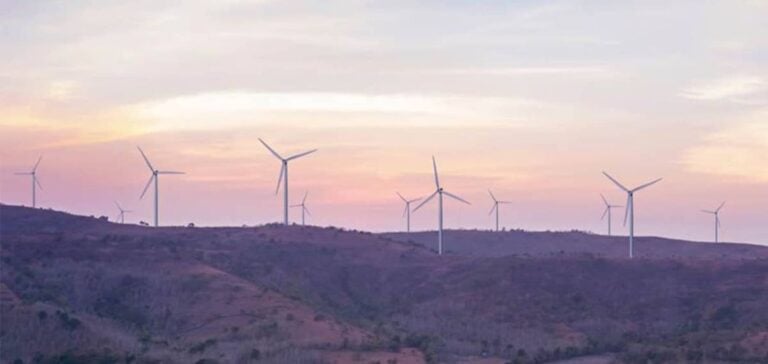Indonesia, which had initially set an ambitious target of 23% renewables in its energy mix by 2025, may be revising this target downwards.
According to a recent report by London-based Ember, this percentage could be reduced to 17-19% due to slow growth in renewable capacity in recent years.
Between 2018 and 2023, the country added just 3.3 GW of new renewable capacity, for a current total of 13 GW.
This growth is mainly driven by bioenergy (1.3 GW), hydropower (1 GW), and, to a lesser extent, solar and geothermal, each contributing 0.5 GW. By way of comparison, Indonesia added 26 GW of fossil fuel capacity over the same period, reinforcing the dominance of these sources in the national energy mix.
By 2023, fossil fuels will account for 86% of the country’s total generation capacity.
The challenges of the energy transition
Coal alone accounts for 62% of Indonesia’s electricity production, or 217 TWh out of a total of 285 TWh generated by fossil fuels.
Despite investments, renewable energies only cover 19% of national energy demand.
Hydroelectricity dominates renewable production with 7% of the total, followed by bioenergy (6.4%) and geothermal (4.8%).
Investment in coal, supported by the government’s program to build 35,000 MW of new power plants launched in 2015, has been massive.
This program was designed to support economic growth projected at between 5% and 7% per year.
However, these investments have led to overcapacity in the energy sector, a situation exacerbated by substantial loans allocated to coal-fired power plant projects, totaling one billion dollars between 2021 and 2022.
At present, coal-fired power plants are operating at just 49% of their installed capacity, well below their potential.
According to Ember, improving the efficiency of these plants to 64% would save between $1.9 and $2.4 billion.
These savings could be reinvested in renewable energy projects, reducing the country’s dependence on fossil fuels.
The Indonesian government now faces the complexities of an energy transition against a backdrop of growing energy demand.
Projections indicate that demand could increase almost six-fold by 2060, from 363-377 TWh in 2023 to 1,846-2,152 TWh in 2060.
This prospect calls for a strategic readjustment of energy priorities, with the need to diversify investments to avoid increased dependence on coal.
The current revision of the National Energy Policy (NEP) 2014 could mark an important turning point for Indonesian energy policy.
The future approach will need to balance growth requirements with decarbonization commitments, while managing the realities of an infrastructure predominantly dominated by fossil fuels.






















